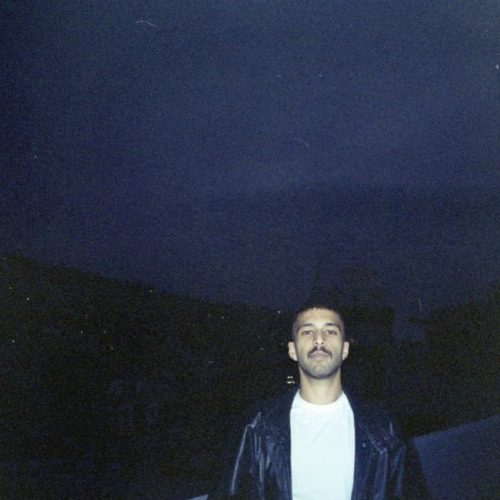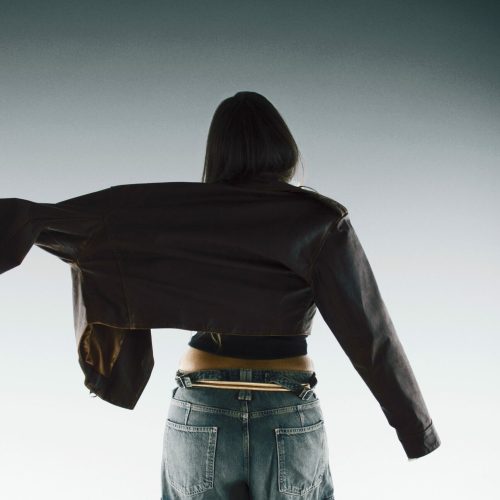Today marks 12-days since in-fighting between two opposing armed forces began in Sudan. The ongoing conflict has killed hundreds of civilians and injured thousands. Below, Fashion Trust Arabia Prize winner Eilaf Osman’s heartfelt plea on why we all need to care about the Sudan crisis and what you can do to help, as told to Mille.
The ongoing crisis has intensely destroyed so much of the country’s infrastructure and the ability for people to be resilient. Yes, there has been conflict in Sudan, but not to this grand scale and not to this intensity where the country is being forced to a point of no resilience.
Key airports have been damaged and destroyed, making it impossible for people to leave or enter the country through the airspace. There’s active raiding and looting that’s happening all throughout the capital city and in other major cities in Sudan. Factories and markets have been burned down. People have not had any access to water and electricity for more than 11-days in 40-degree weather. The telecommunications and internet has been spotty so even communication within the country is really difficult.
There’s currently only 23 functional hospitals in the entire country. There’s a lack of access to medical care in general, and there’s not that many functional pharmacies open. Women that are in labor are not able to go to hospitals and give birth.
Everyone is being affected on the same fronts, but unfortunately it’s the underprivileged that are going to feel the effects even more because most people in Sudan are day workers and so with businesses being out now for 12-days, most people don’t have any savings left. And even people who have money in the country are not able to access it because of the collapse of Sudan’s banking system.
People are essentially trapped in a war zone and if they go out, they risk being killed. And, if they are able to leave their houses, they don’t have the money or the means to be able to flee to another city that’s a bit safer or outside of the country.
Right now, we have a refugee crisis that is happening with a mass exodus of Sudanese people going to Egypt. But the people who are able to find refuge there need to have the financial ability, which already eliminates more than 80% of Sudanese people. They also need to have a passport, which a lot of people in Sudan don’t have.
At the border, they are allowing women and children and men that are over 50-years-old to enter, and then men who are under 50 have to apply for a visa that costs $25. Most Sudanese people have just enough money to get them to Egypt, so what happens once they are there? What are the NGOs and the organizations that are going to be working with finding people housing and supporting them financially? There’s a lot of logistical difficulties.
Right now, the numbers are stating that there have been 400 plus casualties, but that is highly underestimated. People can’t just be going through this war and suffering and dying in silence, and no one is paying attention. There needs to be a humanitarian push for awareness through social media, the same way that we’ve seen in other countries like Ukraine, Syria, Yemen, and Palestine.
People need to donate, read and share posts updating about the war and humanitarian crisis in Sudan to their platforms to amplify Sudanese voices, and if possible, put pressure on their local representatives in their international communities to call for ceasefire, to call for permanent end to the war, to call for peace talks. Write to your local MPs and congressmen expressing your opposition to the war, ask for them to open their borders to Sudanese refugees, and to send aid to local organizations supporting civilian-led initiatives.
We have to care about each other. We have to value each other’s lives. Seeing the mobilization of the youth in Sudan and in the diaspora has been incredible. With little in the way of government assistance, rebuilding is mostly left to individuals. The people who have taken the main responsibility for ensuring people’s wellness and healthcare and security have been the resistance committees, who, in an informal way, became the local representatives of each neighborhood in major cities in Sudan during the revolution. When this war started, they’re the people on-the-ground who have been helping getting people out of the cities, getting people to Egypt, getting people access to healthcare and making sure that neighborhoods are safe, doing the headcounts on who’s alive and who’s not alive.
I think it’s also incredible to see the Sudanese diaspora really mobilized and circulate a lot of the stories from Sudan on their social media platforms to make sure that the crisis has some kind of reach to the international communities. The positive of that is really seeing the resilience of Sudanese youth and still their commitment to the revolution and their commitment to a better Sudan.
It’s very easy to get discouraged and disheartened, but then you see the people on the ground that are really fighting for their survival and they’re so resilient and that is what keeps me hopeful. Even when things look very dire right now, I know that if the violence stops and the country stabilizes, just the will of the youth will bring this country back.
Where to donate:
Sudanese American Physicians Association (SAPA) https://sapa-usa.org/sudan-war-crisis-emergency-relief/
Fil A Heart
https://www.gofundme.com/f/fill-a-heart-fah
Shamaa Organization for Domestic Violence Victims:









